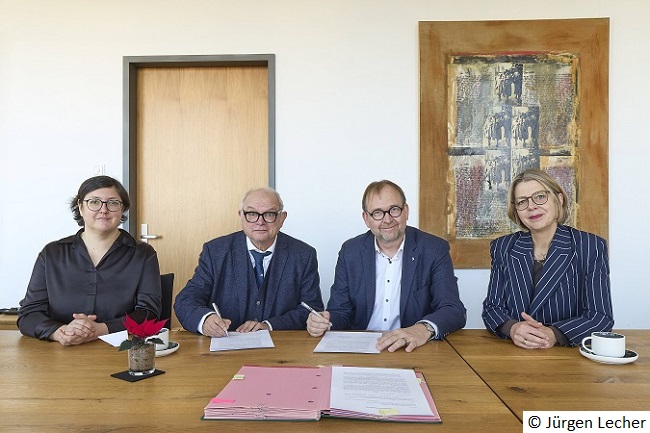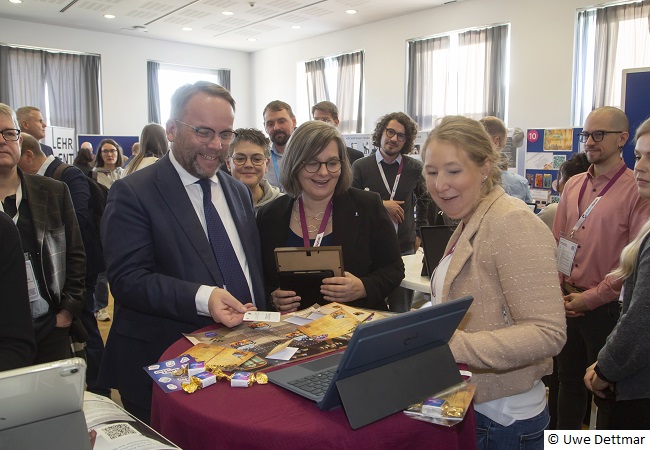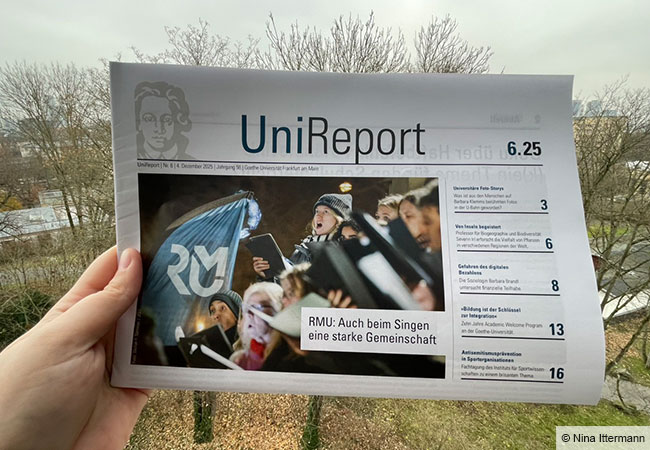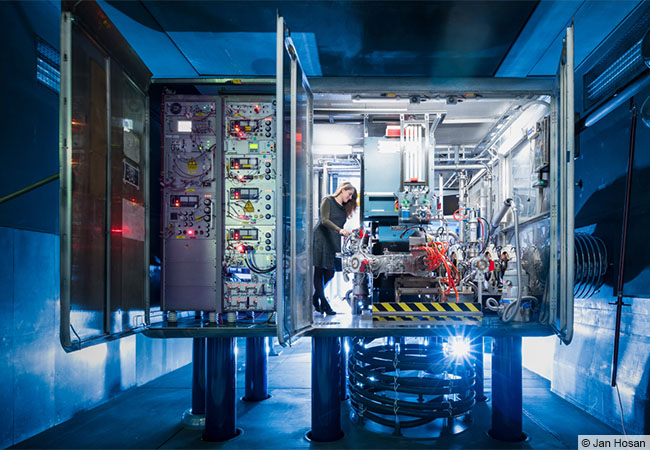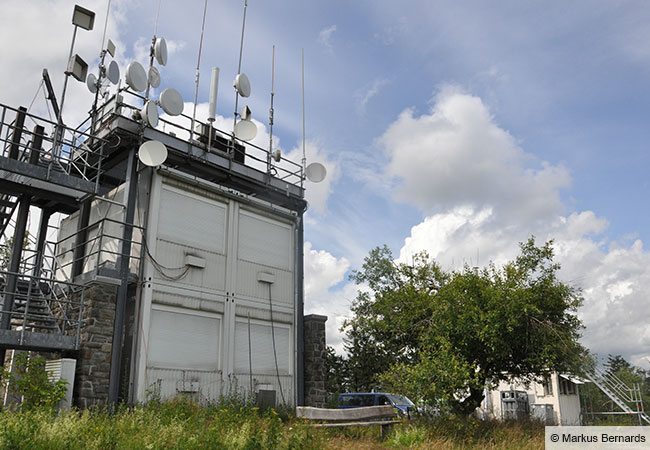Two Goethe University research units emerged successfully out of the German Research Foundation’s (DFG, Deutsche Forschungsgemeinschaft) latest funding round: The new „HERZBLUT“ 5643 research unit in medicine dealing with mutations in white blood cells (clonal hematopoiesis), which increase the risk of cardiovascular diseases and cancer, among others. By contrast, the „LawFin“ 2774 center for advanced studies in humanities and social sciences, focused on the interaction between (financial) markets and the legal system, is entering its second funding phase. In total, the two research units will receive funding to the tune of some €9 million.
The President of Goethe University Frankfurt, Prof. Enrico Schleiff, congratulated the members of the two successful research groups: „Our colleagues are working on two extremely important societal topics. The new HERZBLUT research unit investigating clonal hematopoiesis addresses a highly important health issue affecting many elderly people, which is being studied in close interaction between research and therapy, i.e. both from the research laboratory to the patient and from the patient back to the research laboratory. HERZBLUT brings together two areas in which Goethe University and Frankfurt University Hospital are particularly strong: Cardiovascular and cancer research.“
Schleiff continued, „Interdisciplinary research – in this case conducted by economists and lawyers – also stands at the center of our LawFin research unit, which has built up an international network of first-rate fellows over the past four years. In cooperation with the natural sciences, the center will devote itself to the financial markets’ ‚green‘ transformation toward ecological sustainability and thus provide research contributions that are directly relevant to society.“
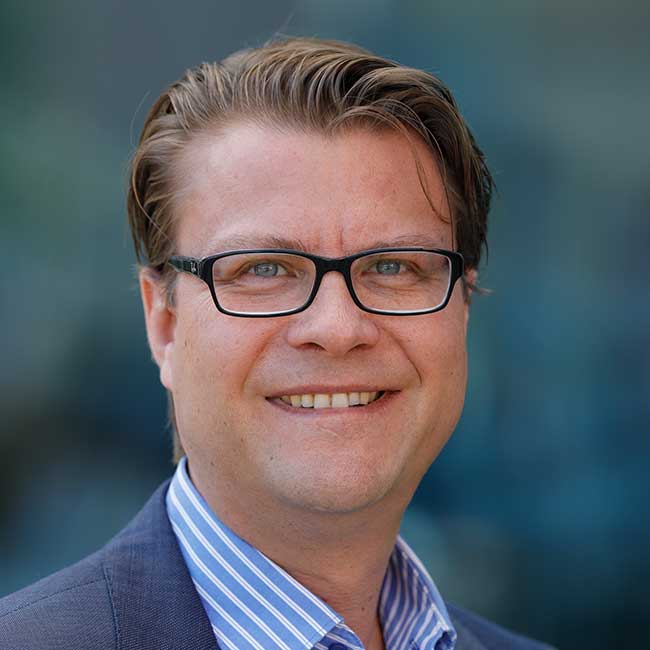
HERZBLUT: As people age, clones of mutant blood cells may grow. In some cases, this process is accompanied by serious cases of illness, including an increased risk of cardiovascular disease or pathological proliferation of blood cells, as in leukemia – which affect more than 20 percent of people aged 65 and above. What are the biological processes that underlie this development, and which genes are predominantly affected by the mutations? Are there instances in which younger people are affected, and if so, why? These are some of the questions being investigated by the research unit „Clonal Hematopoiesis: Pathomechanisms and Clinical Consequences in the Heart and Blood“ [Klonale Hämatopoese: Pathomechanismen und klinische Konsequenzen im Herzen und Blut, HERZBLUT], whose spokesperson, Prof. Michael Rieger, works at Goethe University’s Faculty of Medicine and Frankfurt University Hospital. By joining hands, scientists conducting basic research and those working at the clinic have set out to understand exactly how this process unfolds and how it relates to various diseases. Their goal is to be able to apply the new findings to therapeutic applications. The German Research Foundation is providing €5.7 million in funding over the next four years to the interdisciplinary research unit FOR 5643, made up of scientists from Goethe University Frankfurt and the University of Giessen.
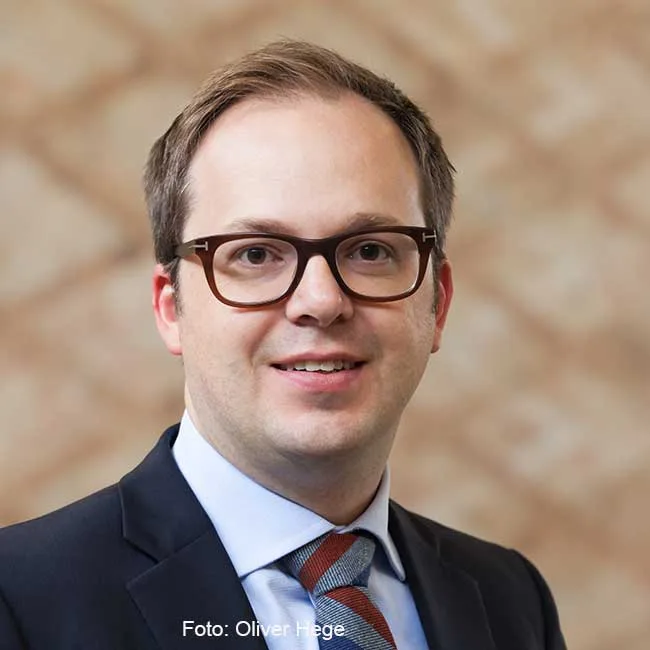
LawFin: The interdisciplinary „Foundations of Law and Finance (LawFin)“ Advanced Studies Center has been extended for a second funding period. The group of researchers from Goethe University Frankfurt and the Leibniz Institute for Financial Research SAFE, led jointly by economist Rainer Haselmann and lawyer Tobias Tröger, aims to improve our understanding of the interplay between (financial) markets and the legal system as a dynamically evolving system.
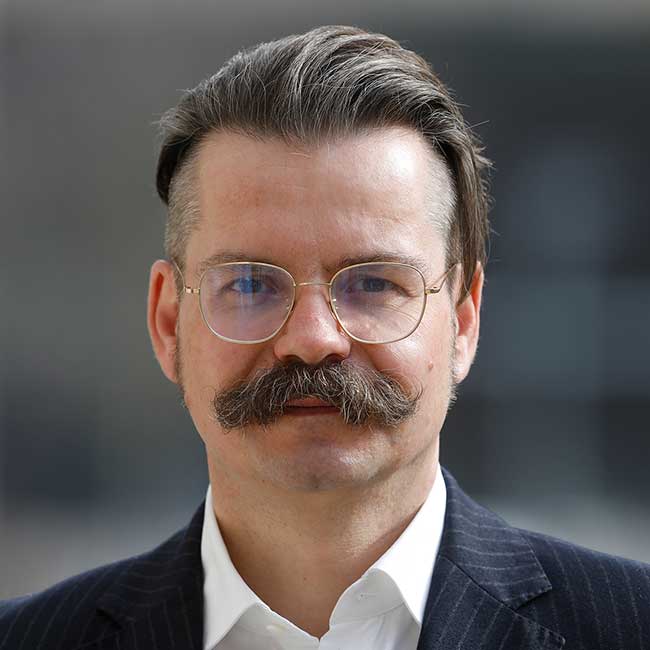
It also sets out to show how theoretical and empirical research in financial economics and law can best reflect the insights gained. Despite its relatively young history, LawFin has established itself as a globally visible institution with a clear profile. The main goal for the second funding phase is to focus specifically on the potentials and shortcomings of „green“ financial market regulation for the realization of ecological sustainability goals. The group will receive €3.4 million in funding from the German Research Foundation for a further four years.
Center for Advanced Studies on the Foundations of Law and Finance: www.lawfin.uni-frankfurt.de/


